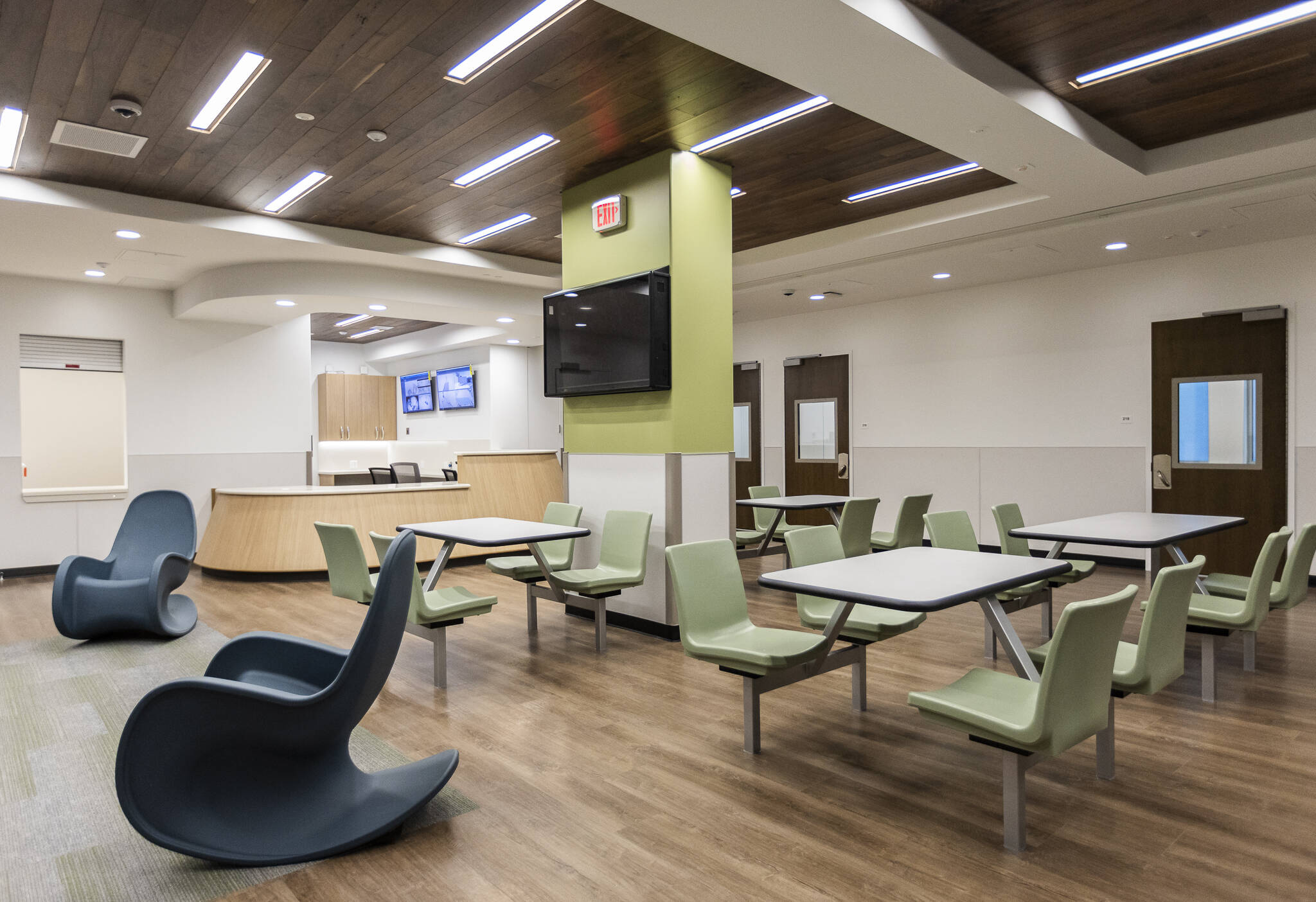EVERETT — Nearly two years have passed since Lynnwood finished constructing its new crisis care center. But it still sits vacant, waiting for patients to fill its green recliners and empty beds.
Crisis care centers throughout Washington have struggled to find operators due to statewide funding challenges. During this year’s legislative session, lawmakers worked to find solutions.
On Tuesday, Gov. Bob Ferguson signed the state’s two-year operating budget, which included $15 million in funding for crisis care centers. The funding would help bridge a gap left by the state’s Medicaid funding model, said State Rep. Lauren Davis, D-Shoreline.
The state health care authority reassesses reimbursement rates for Medicaid managed care organizations every six months. Rates usually increase as more patients use a facility, Davis said, but if organizations are experiencing a six-month delay, they may not be incentivized to pay appropriately.
“It has created a model in Washington where anyone providing these services essentially can’t break even,” said Chuck Steichen, the center’s project manager and Lynnwood deputy chief of police, in an interview in February.
Another challenge providers face is needing to negotiate separate contracts with all five Medicaid managed care organizations. Oftentimes, this leads to disparities between facilities for the same care. Rates aren’t public, so it’s hard for providers to know if they’re getting a good deal, Davis said.
“They have huge business arms, and then you’re putting them in the negotiating room against a tiny behavioral health provider,” Davis said. “So it’s sort of a David and Goliath situation at the negotiating table. It forces the behavioral health provider to have been savvy to begin with, and then to negotiate five times.”
The process is different in King County, where the county negotiates contracts on behalf of crisis center providers, also known as a delegated arrangement. Because it has a delegated arrangement model, many crisis care center providers will only work in King County, Davis said.
On May 12, Ferguson signed HB 1813 to help address this issue. The bill directs the health care authority to expand delegated arrangements to every behavioral health-administrative services organization in the state. While King County has its own, Snohomish County is part of the North Sound Behavioral Health-Administrative Services Organization, along with Skagit, Whatcom, Island and San Juan counties. Under the new legislation, each of the state’s 10 organizations would have to negotiate for all behavioral health services, not just crisis care.
However, providers would still have to negotiate separate contracts with about 14 other non-Medicaid providers.
“It doesn’t fix the funding gap of non-Medicaid, but it does provide simplicity, streamlining and easing administrative burden,” said Davis, a sponsor of the bill.
Despite the funding challenges, multiple providers have applied to operate the Lynnwood Crisis Care Center, Davis said, even before the legislation passed.
“Unilaterally, everybody says it’s a beautiful facility and they’d like to come in and run it,” Davis said.
The idea for the Lynnwood Crisis Care Center began in 2021 after 47-year-old Tirhas Tesfatsion died by suicide while in custody at Lynnwood Municipal Jail. Community members urged the city to reconsider its plans at the time to build a new, bigger jail.
The city decided to dedicate part of the jail’s blueprint to a new recovery center, now the crisis care center, that would serve as an alternative to an emergency room or jail for someone who is experiencing a mental health or substance use crisis.
While actions from the session addressed some of the funding issues, a bill that would have a long-term impact didn’t make it through the Legislature, Davis said.
SB 5762 would have directly funded crisis care centers in Washington state by increasing the 988 crisis line fee for telephone users from 40 to 75 cents per month. Crisis care centers and the 988 crisis line are both part of the national “crisis now model.”
“That, to me, is the real, long-term solution,” Davis said.
For now, Davis said the city is focused on reviewing the provider applications it’s received so far.
“In the immediate term, I’m optimistic that certainly we will be able to get that facility open,” Davis said. “What didn’t get solved was the state’s ongoing problem.”
Jenna Peterson: 425-339-3486; jenna.peterson@heraldnet.com; X: @jennarpetersonn.
Talk to us
> Give us your news tips.
> Send us a letter to the editor.
> More Herald contact information.

























